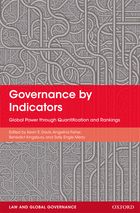Christelle Rigual (The Graduate Institute Geneva)
Pratiques discursives de (non)intervention: une archéologie (1648–1815)
Few studies are dedicated to the concept of non-intervention, which is frequently equated with states’ sovereignty-deduced right to independence. The paper consequently questions how, historically and discursively, the notion of nonintervention emerged and evolved. The research, investigating ‘How has the conceptual system of (non)intervention been articulated and (de)constructed in international discursive practices between 1648 and 1815?’ will be conducted as a Foucauldian archaeology. This theoretical framework suggests looking at the relations, continuities and discontinuities around discursive formations; here the one of ‘non-intervention’ defined as the ‘external (non)interference in the internal affairs of a political entity’. Assumptions guiding the research suggest that 1) concepts of nonintervention and sovereignty did not emerge in a neat package during the Peace of Westphalia; 2) these concepts might have been disconnected and have evolved differently though time. Empirically, the paper qualitatively investigates several bodies of discourses (international treaties, lawyers, politicians and historians) around
key historical junctures from the Peace of Westphalia to the Congress of Vienna, to uncover discursive practices having governed understandings of (non)intervention through time. This contribution fills the gap in our knowledge on the concept of nonintervention, contributing to the literature of International Relations and shedding a renewed light on key contemporary events.
Discutante : Amélie Ferey (Sciences Po)
Lieu : 199 boulevard Saint Germain, école doctorale, 3ème étage
